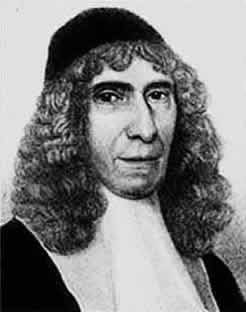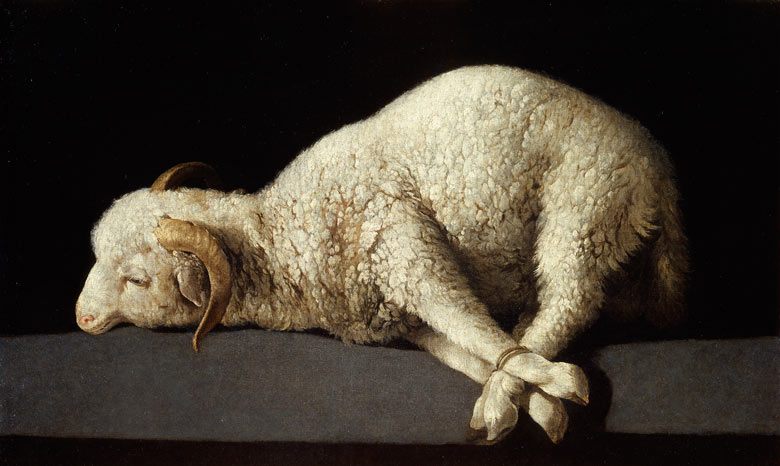Emma Scrivener was born in Belfast, but now lives with her husband in the south east of England. She suffered from life-threatening anorexia as a child and as an adult. She now speaks and writes about her experiences at www.emmascrivener.net. Her book, ‘A New Name’ is published by IVP (ISBN: 9781844745869, 176 pages, £7.99), and can be ordered at the Emma’s website, Amazon.co.ukand Amazon.com
.
Thin Places: Where the veil between the physical and spiritual worlds is almost transparent
 The High Cross at Fflad-y-Brenin
Could God really be more present in one place than in another? I wondered until I slowed down, calmed down, and began to experience thin places. * * * Thin places—near mountains, rivers, streams, meadows, the sea—are, in fact, often places where people have worshipped and sought God for centuries. Benedictines and Trappists often built their monasteries in such places. Is it fanciful to suppose that places in which thousands have prayed would attract the spirit of God—and angelic presences? Perhaps what happens in a pilgrimage spot is not that God descends to earth in a shower of radiance and the earth ever after exudes his fragrance. Perhaps it is we who sanctify spots of earth when we bring our weary spirits, our thwarted hopes, the whole human freight of grief, and pray—our eyes grown wide and trusting; our being, a concentrated yearning. Perhaps that yearning, that glimpse of better things, attracts the spirit of God, and traces of that encounter linger in the earth and air and water so that future pilgrims say, “God is here.” * * * I felt that when we visited Ffald-y-Brenin. There was a peace and holiness in the air. I could sense the presence of God in the stillness and especially around the high cross, placed on the highest hill of the retreat centre towering over the countryside. I gave up analysing it after a while. I surrendered to the peace. As Eliot says in “Little Gidding,” You are not here to verify, That peace, a sudden clarity of thinking and creativity? I guess I could call it the spirit of God. Healing hung in the air. Looking back at my post written there, I see I was praying for healing from self-induced adrenal fatigue. Well, seven months later, it was completely gone, and I was gulping down books again, and writing a lot. *** Just being by the ocean, watching it, listening to the roar of the waves quietens me, reminds me of immensity, of God’s infinite power, and opens me up to his spirit. I suddenly find myself praying in tongues. I pick up God’s guidance and directives most clearly on beach walks. And, as all cultures at all times have noticed, mountains are specially charged with the presence of God. They are places for peace, serenity, and elevated thoughts. In the mountains, my thoughts instinctively gravitate to God. * * * And, of course, in our own homes and lives, places become thin because we often pray there. I pray face down in my bedroom, soaking prayer, and the accustomed place and posture probably more quickly tunes my spirit to peace. I also enjoy walking and praying in the fields around my house for I live in the country. Again the accustomed routine of walking and praying makes me feel happy and exhilarated and, within a short time, I find myself praying in tongues. Thomas Merton writes about cultivating routines of prayer at the same place, and at about the same time, “My chief joy is to escape to the attic of the garden house and the little broken window that looks out over the valley. There in the silence, I love the green grass. The tortured gestures of the apple trees have become part of my prayer…. So much do I love this solitude that when I walk out along the road to the old barns that stand alone, delight begins to overpower me from head to foot, and peace smiles even in the marrow of my bones.” * * * Just we can feel stressed and uneasy by subliminal triggering memories of past trauma in certain places, or in the presence of certain people, our spirits can also swiftly be tuned to peace in places in which we have often experienced God’s spirit, on a particular seat in church, or on a particular country walk. Working in my own garden is a thin place for me. Sooner or later, joy returns. Sooner or later, I find myself praying, often in tongues. Another thin place for me is tidying up. I restore my soul as I restore my house. My body works, and feels happy working, but my mind is fallow. Clarity comes as I work, ideas. Peace returns, and I find myself praying… * * * How about you? What are the thin places in which you most powerfully experience God’s spirit? Tweetable “Thin places,” where the boundaries between the spiritual and physical world are almost transparent. From @anitamathias1 |
Discovering your Unique Voice as a Writer or Blogger; Or, who’s afraid of C.S. Lewis?
They waste their years in vain efforts to be some other poet, some other saint.
When your Theology makes you Cry: Your Theology is Too Small!
One drop would save my soul—half a drop! ah, my Christ!—
Write, first and foremost, for the joy of it: Lessons from the life of John Owen

The Best Way to Develop the Virtue of Humility
(4) Do not imagine that if you meet a really humble man, he will be what most people call ‘humble’ nowadays: he will not be a sort of greasy, smarmy person, who is always telling you that, of course, he is nobody. Probably all you will think about him is that he seemed a cheerful, intelligent chap who took a real interest in what you said to him. If you do dislike him it will be because you feel a little envious of anyone who seems to enjoy life so easily. He will not be thinking about humility: he will not be thinking about himself at all.”
John Wesley’s Cry: Let’s Stand Apart from a Generation of Triflers

In Which I Discover that my Calling as a Christian and as a Writer are One and the Same!
For many years, I felt guilty about having a calling which was not directly compatible with motherhood, i.e. being a writer.
Gerard Manley Hopkins writes,
As tumbled over rim in roundy wells
Stones ring; like each tucked string tells, each hung bell’s
Bow swung finds tongue to fling out broad its name;
Each mortal thing does one thing and the same:
Deals out that being indoors each one dwells;
Selves—goes itself; myself it speaks and spells,
Crying Whát I do is me: for that I came.
What I do is write; and writing is me. Focusing on my writing is following God’s will for me.
- « Previous Page
- 1
- …
- 74
- 75
- 76
- 77
- 78
- …
- 279
- Next Page »

 Celtic Christians prized “thin places,” where the boundaries between the spiritual and physical world are almost transparent. Where we can sense shimmering in the physical world the just-as-real, invisible, supernatural world, charged with the glory of God, with hills ringed with angels in chariots of fire.
Celtic Christians prized “thin places,” where the boundaries between the spiritual and physical world are almost transparent. Where we can sense shimmering in the physical world the just-as-real, invisible, supernatural world, charged with the glory of God, with hills ringed with angels in chariots of fire.







